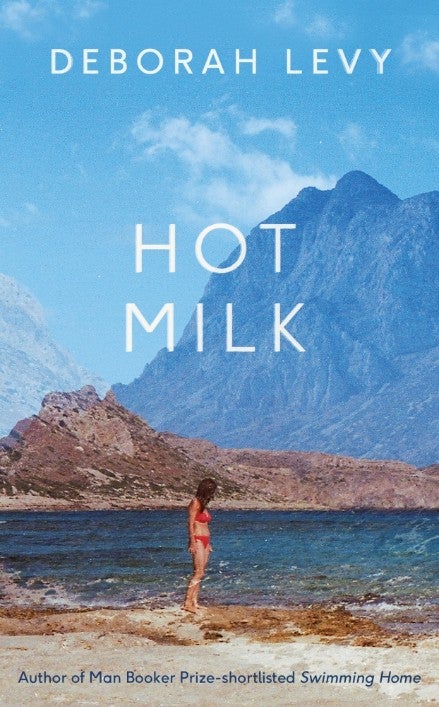Deborah Levy, Hot Milk: 'Perfectly crafted portrait of a relationship in crisis', book review
The story opens with Sofia on the beach suffering from a sting from a jellyfish called the Medusa, and an atmosphere of threat from a snake-headed female resonates from the first page

The mother-daughter relationship is famous for being monstrously fraught and Levy’s dreamlike novel Hot Milk makes uncomfortable reading – despite exquisite prose – because it takes us deep into the swampy terrain of a mother’s love and despair, a daughter’s dependency, and the hostility and rage that arises between two individuals battling for their lives.
Sofia is a half-Greek, half-English 25-year-old visiting a clinic in Almeria, Spain, with her mother to try to find a cure for her mother’s ever-changing, elusive maladies. The story opens with Sofia on the beach suffering from a sting from a jellyfish called the Medusa, and an atmosphere of threat from a snake-headed female resonates from the first page.
Sofia is an anthropologist who has been forced to sacrifice her own dreams, work as a waitress, and care for her mother. She is clear in her yearning if lost in all other ways: she wants a “bigger life”. When asked her occupation she replies: “I don’t so much have an occupation as a preoccupation, which is my mother, Rose.” She is forever propping up her limping mother, physically carrying around the burden of her.
The Mediterranean-born myth of Demeter and Persephone infuses Hot Milk, from the setting – sweltering Almeria and Athens – to the oscillations made by mother and daughter as they continually exchange the roles of victim and abuser, powerful and weak. Rose’s medical symptoms are enigmatic, probably invented, and she flits between being weak, needy, coquettish and manipulative. Sofia struggles to breathe near her, looks for exits, air. The novel asks: why is it that mothers must rage and go to extreme lengths to stop daughters leaving?
The 15 best opening lines in literature
Show all 15Economics – personal, national and international – provide a tangible anchor to the literal and metaphysical Greek psycho-drama. Rose has mortgaged her house to pay for the clinic; Sofia’s father funds another family while neglecting to contribute to Sofia’s life; Sofia constantly worries about money; talk of the Euro and austerity place the story within a very contemporary context.
Alongside all of this, there is desire. Sex suffuses the novel, with pleasure frequently crossing into pain. There are sunburn, blisters, cracked lips and stings, skin in the heat and transgressions into lust. Just as Sofia is non-committal and drifting in life, she floats in a passive manner among sexual partners, propelled not so much by emotion as by a desperate attempt to escape being crushed under the weight of her mother’s irrational demands. She is perpetually trying to be bolder.
There is much gender-blurring, with women looking like men, and this boundary-crossing provides the back-drop for the tremendous struggle at the heart of the novel. Hot Milk is perfectly crafted, a dream-narrative so mesmerising that reading it is to be under a spell. Reaching the end is like finding a piece of glass on the beach, shaped into a sphere by the sea, that can be held up and looked into like a glass-eye and kept, in secret, to be looked at again and again.
Suzanne Joinson’s second novel ‘The Photographer’s Wife’ will be published by Bloomsbury in May
Hot Milk, by Deborah Levy. Hamish Hamilton £12.99
Subscribe to Independent Premium to bookmark this article
Want to bookmark your favourite articles and stories to read or reference later? Start your Independent Premium subscription today.

Join our commenting forum
Join thought-provoking conversations, follow other Independent readers and see their replies